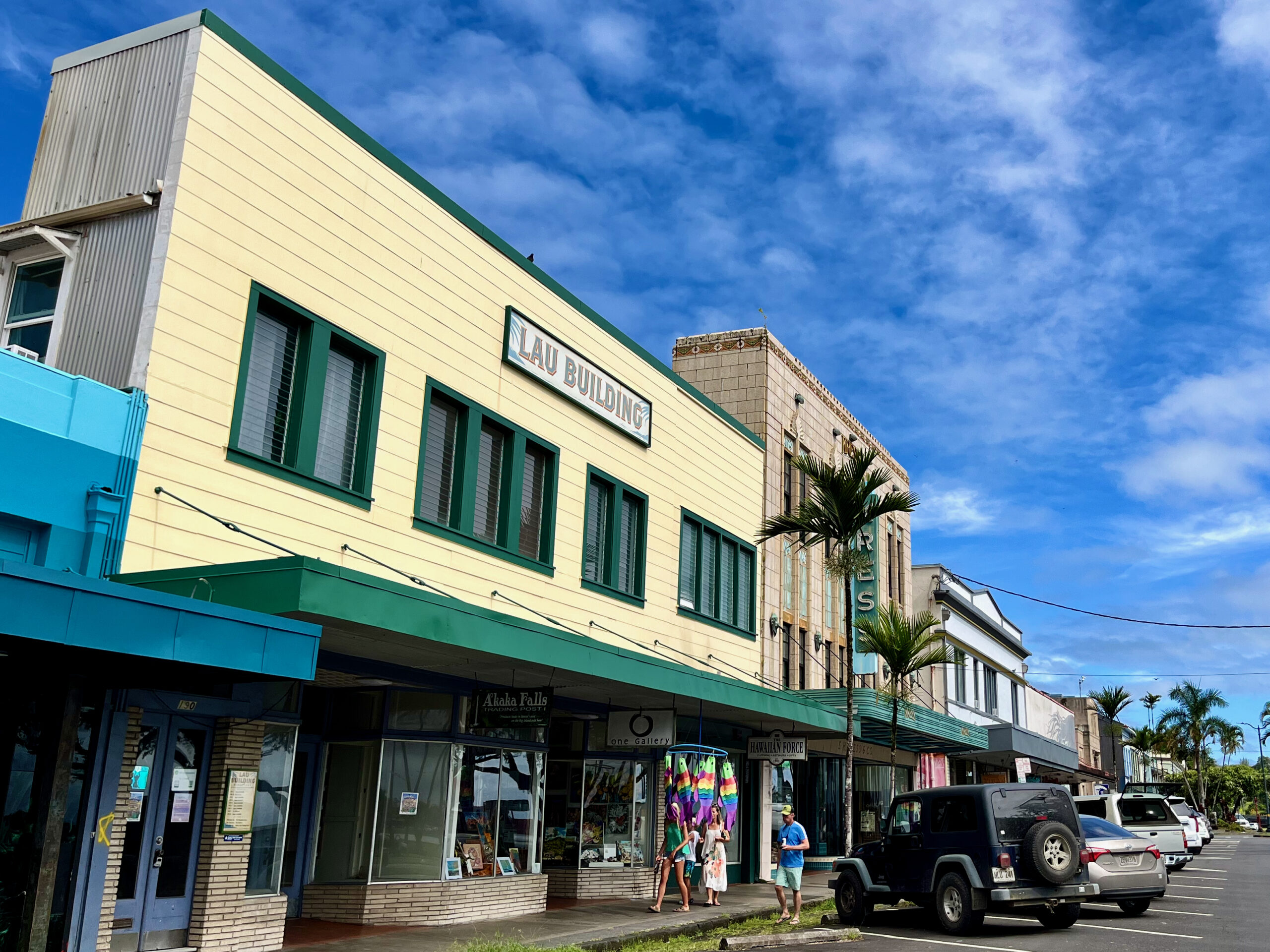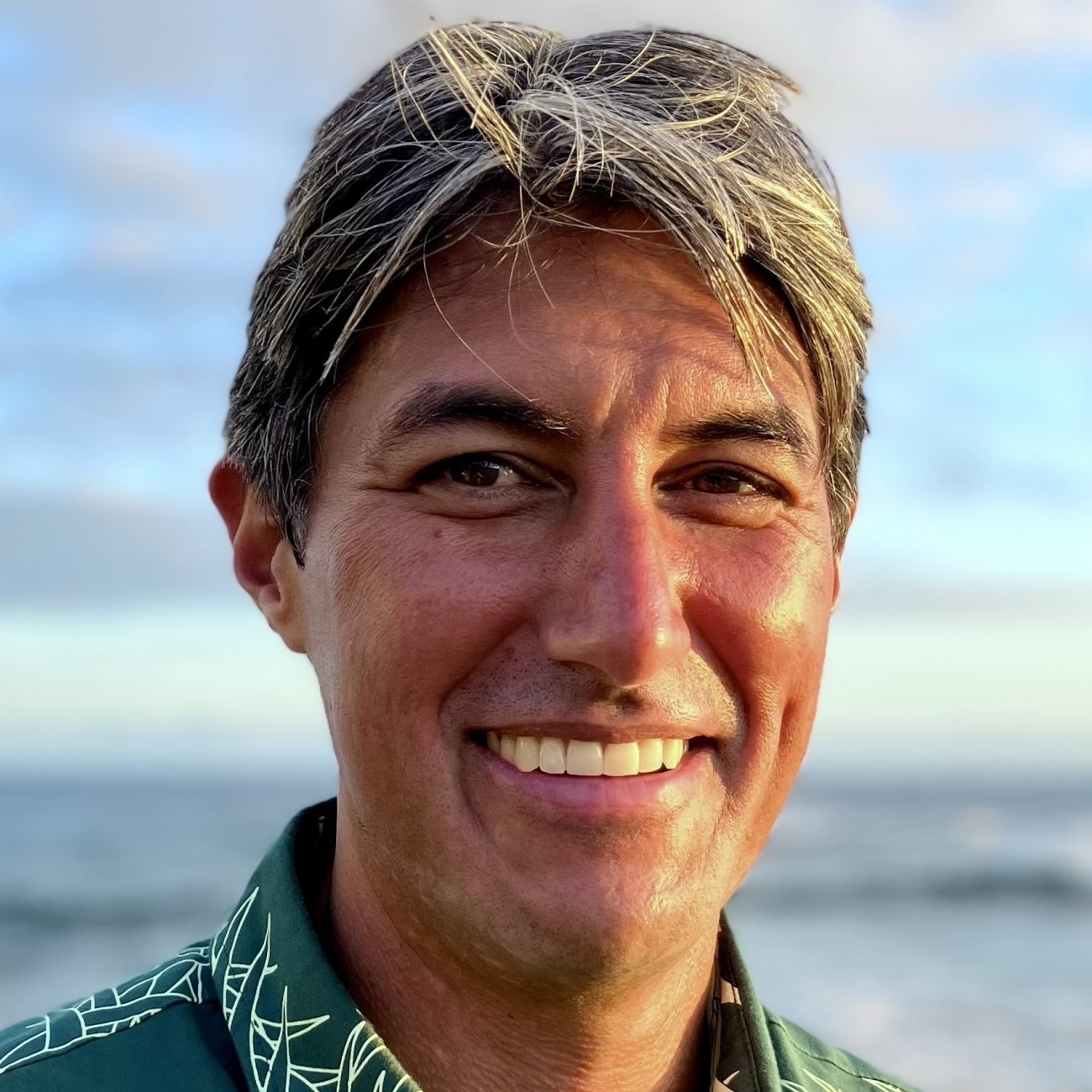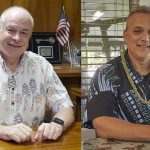Naka Nathaniel: Hilo, Of All Places, Seems Poised For Growth
The site of Civil Beat’s next “Storytellers” event Is defying its sleepy reputation.
July 10, 2024 · 5 min read

About the Author
Naka Nathaniel is an Editor-at-Large at Civil Beat. You can reach him at naka@civilbeat.org.
The site of Civil Beat’s next “Storytellers” event Is defying its sleepy reputation.
Ever since David Sedaris sold out two shows at UH-Hilo last year, I’ve repeatedly found myself surprised by something in my father’s hometown and joking, “Hilo, who knew?”
Last weekend, my cousins and I were at Haili Church in Hilo talking about the town with the sleepy reputation where our parents were raised.
None of us knew Hilo before the second deadly tsunami struck the town in 1960. However, the Hilo of our grandparents’ generation was a thriving and industrious town based on the booming sugar plantations. Hawaii island’s economy suffered from the closing of the sugar plantations last century, and it has been a struggle to find a replacement industry beyond tourism.
Recent analysis by former Texas state demographer and Hawaii island resident Karl Esbacher shows that more retirees are moving to Hawaii island and younger families are leaving for economic opportunities outside of the state. This is causing the island’s population to decrease.
But not all of the demographic news and trends are dire for Hawaii island. There’s a chance — or at least a hope — that some trends could create the conditions for creativity and opportunity outside of the gravitational pull of Honolulu.
According to the University of Hawaii Economic Research Organization’s economic diversification report released last week, Hawaii island has many more options to diversify its economy than any of the other three counties. The report said existing industrial diversity creates more branching opportunities, meaning there are a variety of local capabilities that can be used to establish new industries.
Those opportunities are thought to be closely tied to Hawaii island’s connection to the aina and ocean. Now will this turn Hilo into the next Brooklyn? Not in anyone’s wildest dreams, but the UHERO report provides the possibility for the return of economic prosperity to Hilo.
My most recent Hilo surprise was the discovery of a new shop selling rolled ice cream. Originally from Thailand, rolled ice cream has been available in culinary beachheads of the East Coast for years, so Chillville’s opening across from the Palace Theater merited a “Hilo, who knew?”
Now, one novelty ice cream shop does not make for an economic boom, but perhaps there’s room for more economic opportunity. Could people willing to make an economic bet on Hilo make a difference and stem the outmigration tide? Beyond families leaving Hawaii, too many from Hilo trek across the Saddle between Mauna Kea and Mauna Loa to tourism jobs in Kona and South Kohala.
On a personal level, I see glimmers that could make the UHERO report truly prophetic.
My visiting family this past week all made time in their schedules to not just hike and explore Volcanoes National Park, but to do some serious shopping in downtown Hilo. All against the backdrop of the vibrant and joyful Pride celebration.
Twenty years ago, Richard Florida wrote “The Rise of the Creative Class.” He said that it wasn’t tax incentives, large music venues or stadiums that attracted creative types, but tolerance, talent and technology, bolstered by an active arts, food and cafe culture scene.

Those were the underpinnings of hotspots like Austin, Nashville and Portland.
So what are the conditions that spur the next version of creative enclaves in the 2030s? And could Hilo benefit from those changes in generational preferences?
Hilo has great designers along the Bayfront, such as Sig Zane, Hawaiian Force and Simply Sisters along with fun boutiques like Hana Hou. There are great parks, gathering spots like the Laulima Nature Center and plenty of places to get a good beverage and a good meal. And, the housing prices aren’t anywhere near the countless multimillion-dollar homes for sale on the Kona coast.
There are so many businesses and spaces in Hilo that are helping to create a vibrant retail community, even as the downtown area grapples with vacancies and homelessness.
Several of the old buildings along the Bayfront have found new life: the old Kress department store houses a charter school, the old Bishop National Bank is the Pacific Tsunami Museum and the former Koehnen store is the Mokupāpapa Discovery Center. Yet, there are still many places in need of rebirth.
And beyond hosting the Merrie Monarch Hula Festival every year, this year Hilo Bay will be the site of the International Va’a Federation World Sprint championships. Crews from across the globe will compete in outrigger canoes Aug. 16-23.
So how does Hawaii support people willing to make a bet on Hilo? That’s a question to be put to the candidates in the many competitive electoral races on Hawaii island.
Hilo has long nurtured her talented keiki. There’s a long roster of talented people who grew up in Hilo only to find success elsewhere, like performer Kalani Pe’a, chef Sheldon Simeon and possibly most impactfully for our species, Nobel-winning biochemist Jennifer Doudna, the inventor of CRISPR, the gene editing tool.
So how are the next generation of Kanilehua (people from Hilo) going to be nurtured and inspired? First off, how about some wonderful mo’olelo from those that call Hilo home?
I’m excited that Civil Beat’s next “Storytellers” event, “Hilo: Where I Live,” will be held at the Hilo Palace Theater on Friday, Aug. 9.
We will have an evening of mo’olelo about a place that is truly unique and will provide answers to my question of “Hilo, who knew?” These storytellers have known all along.
 Sign up for our FREE morning newsletter and face each day more informed.
Sign up for our FREE morning newsletter and face each day more informed.
Read this next:
Wastewater, Housing And Hazard Pay Are Driving The Big Island Mayor's Race
By Paula Dobbyn · July 11, 2024 · 9 min read
Local reporting when you need it most
Support timely, accurate, independent journalism.
Honolulu Civil Beat is a nonprofit organization, and your donation helps us produce local reporting that serves all of Hawaii.
ContributeAbout the Author
Naka Nathaniel is an Editor-at-Large at Civil Beat. You can reach him at naka@civilbeat.org.
Latest Comments (0)
Aloha,Traffic is getting worse turning left onto Kekuanaoa from Hwy 11. The same is true for turning left from KÄ«lauea to Mohouli. My friend tells me that many of the people who moved here during Covid from California etc. are returning as Hilo is too small and too local, too many retireeâs and too many democrats. Good news for me.Mahalo
Koaniani · 6 months ago
Until we raise the standard of living and find ways to house people at an affordable rate, people will leave the islands. The people who can afford to live here have incomes that are not dependent on the Hawaiian economy.
Richard_Bidleman · 6 months ago
People rant about the rain, but Hilo rain is liquid sunshine. It is what makes the place special, and keeps the superficial elements away.
Keaukaha · 6 months ago
About IDEAS
IDEAS is the place you'll find essays, analysis and opinion on public affairs in Hawaii. We want to showcase smart ideas about the future of Hawaii, from the state's sharpest thinkers, to stretch our collective thinking about a problem or an issue. Email news@civilbeat.org to submit an idea.

